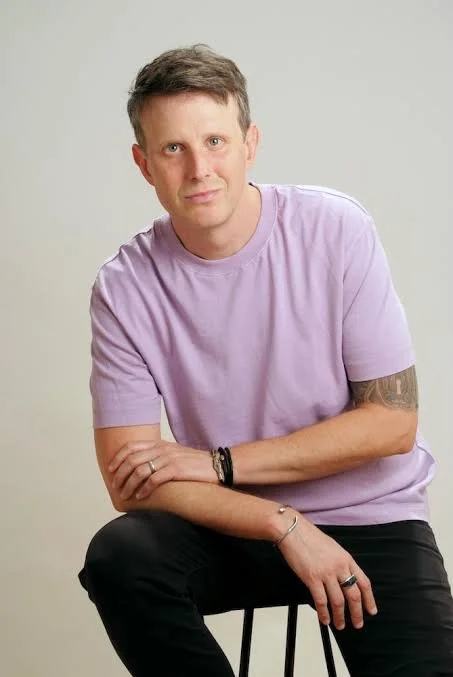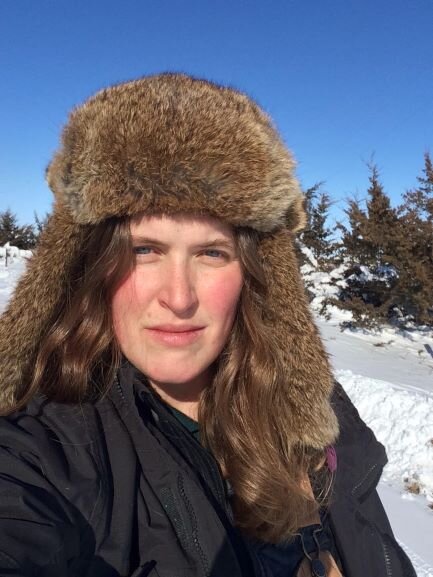MFA Student Spotlight: An Interview with Daniela Garvue
by Emily Collins
Welcome back to CutBank’s weekly MFA student spotlight where we interview current MFA candidates at the University of Montana. This week’s spotlight is Daniela Garvue, a wonderful fiction writer with an affinity for cartography and invasive species. I recently sat with Daniela where we discussed modern literature, interdisciplinary studies, and the beautiful Missoula landscape.
Emily Collins: What drew you to the MFA in fiction program at the University of Montana?
Daniela Garvue: It was the landscape! I knew the mountains were calling to me, and I'd heard amazing things about the town of Missoula. I didn't know much about the program itself except that it had produced many writers who want to tell stories about the land. I think that's the most important thing I can do- find ways to make people appreciate the complex social ecology of a place by telling its stories. I was looking for a community of people who are as interested in that nerdy nature stuff as I am. I've found more than my share of nature nerds here, as well as writers who've really expanded my horizons and taught me to notice the more human side of life.
EC: Who are your favorite fiction writers, memoirists, poets, etc.?
DG: Right now I can't get enough of Tove Jansson. She was a Finnish writer who wrote the Moomintroll books, which I loved as a kid. But a few years ago I discovered she'd written a ton of adult fiction: short stories, novels, essays, a memoir... I don't even think they've translated all her work to English, so reading her collection is a wonderful, slow-release gift. She writes with such precision, she has a naturalist's eye, and she manages to capture a sense of innocence and wonder that's lacking in a lot of fiction. Her characters feel very real to me, and I've come to love the settings (mostly stark, Nordic islands).
I also have been revisiting Barry Lopez, who died over Christmas. I think he was one of the greatest modern writers because he paid such close attention to the world. He noticed systems (both social and ecological) that only became clear with time and many hours of observation. That noticing is the best lesson I've ever learned about writing.
EC: What are you working on writing-wise and what do you hope to gain during your time at UM?
DG: My current project is about invasive species, which I have a real affinity for. So I'm doing a lot of research on the earthworm (can you believe they aren't native to the US?!) and the cutworm moth and critters like that, and writing their stories parallel to a cast of human characters. I see it as a sort of guidebook, hopefully blending fiction with natural history. It's a bit of a mess, but I'm having an excellent time with it.
Hard to say what I hope to gain from UM. Two years dedicated to writing was a great start! Plus great friends, the chance to meet really smart and wonderful people, access to cool classes and professors. Book recommendations. Industry advice. Experience reading and editing for CutBank. Connections with writers and publishers. All those things!
EC: When you're not writing, what are some of your favorite hobbies, interests, etc.?
DG: I try to get into the woods as often as I can, usually with a guidebook or some other way to look up plants and animals. I sing and play a little guitar, and have a great group of musician friends that keep me sane. Recently I've learned to use a mapmaking software called ArcGIS Pro and I'm having so much fun making useless maps. One day I'd love to work on a book of maps.
EC: When you look back on your journey as a writer so far, what excites you the most?
DG: Two things: First, I've become more of a renaissance woman. By that I mean I've learned to dabble in more subjects. For example, last year I took this kick-ass class called Transhumanism that was radically interdisciplinary when so much of academia is specialized. It reaffirmed that I'm not interested in being a specialist. There's something so awesome about being a jack of all trades, and trying and failing at a bunch of things. The mapmaking has been part of that. So has learning about the ecology of Missoula, and trying to write in new forms, and doing research on invasive species, etc. Lately I've started learning to spin wool. I think it goes back to paying attention to the world. In the last few years I've just really gotten excited about trying things, and that's made me a happier writer.
The second thing is cheesy by true. I love my cohort so much. I can't believe my luck, finding people who are so generous and talented and fun to hang out with.
EC: Bonus Question: If you could quarantine with any writer throughout history, who would they be and why?
DG: Jeez. I'd love to be out in the backcountry with Barry Lopez, for reasons I've already stated. But I think I would have so much fun with Ursula K Le Guin. If anyone was a jack of all trades it was her. She wrote science fiction, essays, screenplays, poetry, a reinterpretation of the tao te ching, etc etc etc. Would love to sip some scotch and just see where our conversation ended up.
Daniela Garvue is an MFA candidate at the University of Montana. She hails from the central Nebraskan plains and won't shut up about it. Her stories appear in the Bellevue Literary Review, Tahoma Literary Review, and elsewhere, but her best work was carved into a desk in 5th grade. She enjoys following game trails, dressing up in her grandfather's bolo ties, and making pancakes.
Emily Collins is the Interviews Editor for CutBank and a MFA in fiction candidate at the University of Montana. Her work has appeared or is forthcoming in New Orleans Review, The Florida Review, The Atticus Review, The South Carolina Review, and others. She’s been nominated for the Pushcart Prize and other anthologies. When she’s not interviewing incredible writers, she enjoys hiking and volunteering.






























































